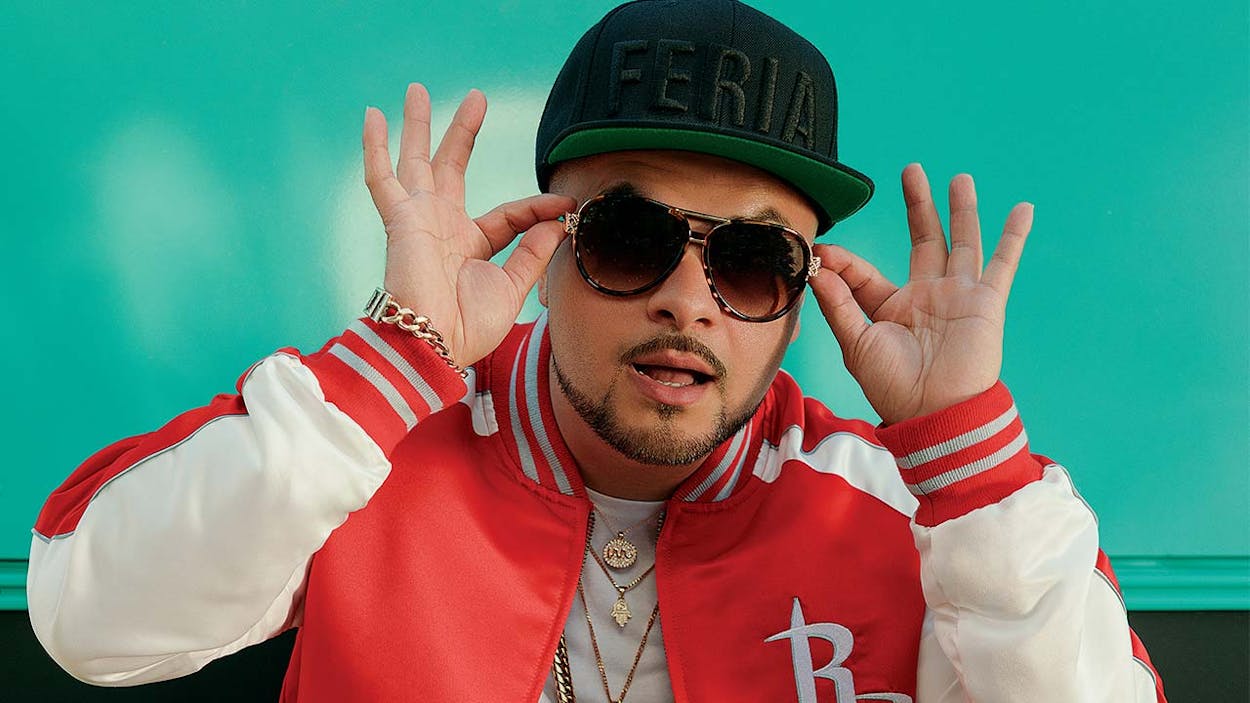Chingo Bling’s new stand-up and sketch comedy special on Netflix is titled They Can’t Deport Us All. Too soon? Never too soon, says the 37-year-old Houston rapper turned comedian, who actually used the same title a decade ago on his breakthrough album. Though Bling (a.k.a. Pedro Herrera III) still raps, his pivot toward comedy has paid off. On YouTube, social media, and chingobling.com, his vlogs, podcasts, comedy sketches, and hip-hop video send-ups have racked up more than 40 million views. His latest comedy tour features a summer run that includes dates in major markets like New York City, Chicago, and Washington, D.C.
Andy Langer: You started rapping in the early 2000s. I imagine it’s been interesting and empowering to see just how much has changed demographically—and in terms of Latino culture and entertainment—across that span.
Chingo Bling: There’s a generation of entertainers coming up who don’t have to be in your face about race and identity. But just because America’s DNA is browner doesn’t mean we have more power. There are small towns in Texas that are almost entirely Mexican, but their political representation is almost entirely white. Things haven’t changed that much if mass deportation is on the table. And then you have “Latinos for Trump.” It’s sticky.
AL: Does Donald Trump make this the best of times and the worst of times to be a Latino comic?
CB: I heard Dave Chappelle say Trump is bad news for comics, because every comic has a Trump joke and so many of them are similar. It’s almost too easy. Generally, when I attack things, I want it to be more about big systems and structures instead of just one guy. It’s almost a disservice to my people to suggest that it’s politicians that can hurt you and politicians that can save you. That sends the message that engaging in your community, even helping the old lady cross the street, is fruitless. It’s like, “Maybe in four years another one will swoop down in a cape and save us all.”
AL: And yet, during the election you posted a scathing letter you wrote directly to Trump, calling him out for campaign speeches scapegoating Mexicans and Mexican Americans.
CB: In retrospect, I should have taken that same energy and dug a little deeper. I should have looked for the irony. Maybe it’s not “They Can’t Deport Us All.” Maybe it’s “So What If They Do?” Maybe Mexico’s not so bad after all. There are some nice beaches in Mexico. Mass deportation is the worst-case scenario? But what if the worst-case scenario is paradise?
AL: At the heart of your comedy are jokes that bounce back and forth between urban and immigrant culture. That’s very similar to how you approached hip-hop.
CB: That juxtaposition is important to me. Even visually. Early on, I said, “I’ll wear cowboy boots, but I’ll also put the Nike swoosh on them. I’ll wear a grill, but that grill is going to be a Mexican flag. I’ll wear the cowboy hat but throw a do-rag under there.” I toyed with a lot of stereotypes.
AL: What do you like about stereotypes?
CB: I like that they’re so challenging—you have to hold the bomb in your hands, get up in there with the wires, and try to disarm it without detonating it. My approach is, “Okay, let’s talk about this. It might be uncomfortable, but let’s look at it from a different point of view and see if we can get a laugh out of it.” Not talking about stereotypes perpetuates them. If you’re afraid to go there, people wonder if you’re embarrassed or if it’s maybe true.
AL: The true ones are the funniest and the most dangerous, right?
CB: The stereotypes that aren’t true aren’t funny. My whole musical outlook was essentially a satire of hip-hop and its stereotypes. Look at what was going on in hip-hop at the time—they were flashing their jewelry and cars. It was a numbers game: How many chains? How many cars? How many baby mamas? I thought it was funny to look at it like, “Hmm, a lot of this isn’t sound financial advice.” But I always knew I was an outsider. As much as I’d have loved to be in that world, I’m a schoolboy with a marketing degree from Trinity who was working as a substitute teacher. I wasn’t hard. So instead of faking street cred, I made fun of the excess of it all. I wasn’t afraid to act the fool.
AL: As a comic, you’re still in the student stage, no?
CB: Absolutely. I don’t want to ever feel too comfortable. After every performance, I watch the tape and make notes. I’m constantly tweaking my set. I’ve come to realize I never properly appreciated writing in high school. It felt academic, like work. But as a grown man, I’m saying to myself, “Wait a minute, there’s irony in this rap song, there’s tension in this Walking Dead episode. That’s where they get their power. So in joke X or Y, how can I use irony to build tension?” It’s all in the writing. I’d like to see myself eventually as a writer who performs instead of a rapper who does comedy. I’m a stickler for structure right now, but I also know that performances have to be alive and malleable, open to both antagonism and surprise.
AL: In comedy, the feedback is immediate.
CB: If your stuff isn’t structured properly, if there are extra words or the setup is too long, you’re not going to get the laughs. In hip-hop, you’re always working the crowd, prompting them with stuff like, “Where’s my single ladies? Lemme hear you say . . .” With comedy, you don’t have that luxury. And you can’t hide behind a beat or backup dancers. With comedy, you can’t fake the funk.
This interview has been edited for clarity and length.







